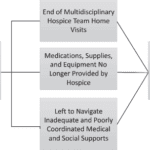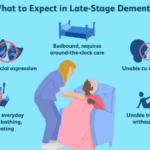Category: Dark Side
Dark Side in the area of ethics specifically in the field of hospice and often relating to hospice at facilities
Dark Side in the area of ethics specifically in the field of hospice and often relating to hospice at facilities

Caring for a terminally ill loved one at home is an incredibly challenging and emotional journey for family caregivers. This guide acknowledges the struggles you may face and offers compassionate solutions. It explores valuable resources, such as end-of-life doulas, PACE programs, and professional home care services, all designed to help ease your burden and provide support during this difficult time. You are not alone in this experience; there are ways to find relief and comfort as you navigate these profound challenges.

Hospice care in facilities can face challenges due to facility policies, staffing issues, and lack of coordination with hospice providers. This article sheds light on the struggles patients, families, and hospice nurses face in ensuring timely, appropriate care.

Pharmaceutical advertisements often highlight the benefits of a particular drug, including its ability to reduce the risk of various health conditions. However, the actual risk reduction these drugs provide may differ from what is portrayed in the advertisements. It is the opinion of the author that if cardiologists and other providers told their patients the absolute risk reduction of statins is 0.8% for all-cause mortality, 1.3% for myocardial infarction and 0.4% for stroke and the side effects of going on a statin include dementia, worsening dementia, confusion, muscle problems, such as aches, pains, weakness, muscle breakdown, falls, nausea, constipation, diarrhea, and increase the risk of type 2 diabetes, would you or anyone else ever agree to take a statin?

If your loved one is facing a discharge from hospice due to failure to decline, it's crucial to comprehend the situation clearly. This discharge indicates that the healthcare team believes your loved one's condition has stabilized and no longer requires hospice care. While this might be a positive sign, it's important to weigh the pros and cons before making decisions. Let's delve into both the positive and negative aspects of this situation to help you navigate it effectively.

As an experienced hospice visiting registered nurse, today offered me profound insights from two interconnected perspectives. The first highlights the blind trust we often place in facility nurses and doctors when caring for our loved ones. The second involves the challenges I encountered while advocating for proper end-of-life care for a patient with Alzheimer's.

Explore the ethical dilemma of physical therapy for terminally ill dementia patients. This article examines the potential harm of aggressive interventions, highlighting the importance of comfort-focused care. Learn why hospice professionals often advocate for gentler approaches in end-of-life dementia care.

Personal stories from the frontlines of Covid-19 in a nursing home, highlighting the bravery of heroes and the harsh realities faced by residents and staff.